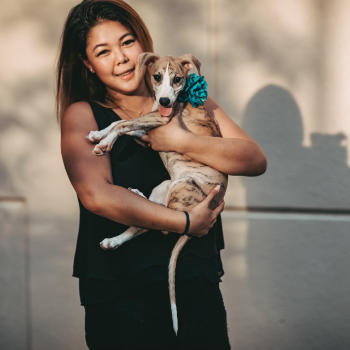
Meet the Newest Members on Our Council
The Law Gazette speaks to the two newest members of the Council who took office in January 2022, Darryl Chew Zijie and Sarah Ephesians Tan, who are also junior category lawyers. Here’s what they have to say about law and life.

Darryl Chew Zijie
1. Tell us a little bit about yourself and your law practice.
Sarah: I graduated from the University of Manchester and was called to the Singapore Bar in 2018. I was trained in general litigation but now, I primarily practise criminal law. I find great joy in assisting CLAS as best as I can. Further, I recently partnered with a few lawyers to start a grassroots initiative to educate citizens, who do not meet the requirements for legal aid but are unable to afford legal representation, on their various legal issues.
Yong, Seow & Lim Legal LLP is a firm that was started by a number of my ex-colleagues whom I had worked closely with in the past. We have used this opportunity to grow our firm’s practice areas as well as discover and nurture our own respective specialities. In my view, we pride ourselves on being lawyers who do not dress or appear as lawyers which allow our clients to feel more at ease when speaking with us and we greatly appreciate that.
Besides being Sarah the Lawyer, I enjoy simple pleasures in life such as HIIT workouts, golf, gardening and wine (probably too much!).
Darryl: I graduated from the University of Southampton in 2016, and was called to the bar in August 2018. Amid the recent conversations on the high attrition rate of young lawyers, I am one of the fortunate young lawyers who is still practicing at their first law practice (and enjoying it) since being called.
I see lawyering as a fulfilling profession that not everybody has the opportunity to venture into. When a client engages a lawyer, it is usually the most stressful period in his/her life. Being a young lawyer, I am grateful for having the opportunity to alleviate some of this stress and to make a difference in a client’s life. My positive views towards practice might be due to the nurturing nature of the partners in the firm, who care and devote their time to mentor us, as well as the firm’s warm and friendly working environment.
My (and the firm’s) main areas of practice are family law, civil and criminal litigation. The work we do include divorces (including high net worth divorces and cross-jurisdictional issues), guardianship and custody matters, personal protection order and maintenance applications, asset and wealth management, and estate matters. I also practice civil and criminal litigation, which include highly contentious and media sensitive cases. Despite our strong and aggressive litigation foundation, we strive to achieve a balance between pragmatism and justice at all costs.
2. What do you plan to focus on during your term in Council, for example, any pet projects or a specific member group?
Sarah: When I decided to run for Council elections, I had based my nomination write-up on the issue of lawyers, especially young lawyers, leaving private practice or in some cases, the profession completely. As a lawyer in the junior category, I understand the challenges the young lawyers face and can sorely relate to them.
With the recent articles published addressing the fatigue and overwhelm faced by young lawyers, I find that now is the time, more than ever, to find and implement long-term solutions to tackle workplace difficulties and public perceptions of lawyers. These issues, in my view, greatly contributed to the loss of fervour in this role and profession.
I look forward to working closely with the Council to discover viable solutions which can be executed to assist young lawyers overcome their respective challenges.
Darryl: As shared in my election message, I hope to use my term in Council to focus on the welfare and mental health of young lawyers. The high attrition rate of young lawyers is no secret and I believe we as a Bar can do more to improve this. However, I recognise a delicate balance must be struck to not “sugar coat” the training of young lawyers, which may affect the standard of the profession. Likewise, I hope to change the focus of CPD young lawyers, including looking into the possibility of reducing the points required per year, whilst striking a balance with the objectives of the CPD regime.
3. What is your wish for lawyers and the practice of law?
Sarah: My wish for lawyers is for us to regain the spirit of community within the profession. One noticeable difference with our new, swanky and modern State Courts is the incredibly underutilised Bar room which was once used as a place to relax after an arduous court session or catch up with friends over coffee, toast and eggs (not before leaving some money behind the counter!).
This has undoubtedly changed due to COVID-19 and possibly the change in the structure of the State Courts and the hastened demands of deadlines. The same can be said of myself as well. Going to court now has turned into just another task to check off my daily to-do list as I say to myself, “There is no time to waste! I need to get cracking on the next thing on my list!”.
I hope that we can all re-learn to slow down on less busy day and enjoy a cup of coffee with one another again and share the newspaper.
Darryl: My wish is for lawyers, especially young lawyers, to be reminded of why we pursued law in the first place, so that more of us, who are the future of the profession, remain and excel in practice. The exodus of young lawyers, if left unchecked, will lead to a shortage of lawyers and tougher working conditions in the future; and accordingly, our long-term survivability.
While I hope for more of us to remain in practice, the inescapable fact is that lawyering is hard work and we must be willing to commit. Success or nurturing terrific lawyers does not happen overnight, so I find it a pity for young lawyers to go through years of tedious education and training, only to leave practice within the first five years, even before we reap the rewards of our hard work. That said, I acknowledge that some of us leave the profession to safeguard our mental health, and this is perfectly understandable. While the practice of law might have become a business nowadays, we are still a fraternity of learned friends, and I believe that we can do better in advancing the welfare of lawyers, whilst at the same time deliver the same high standard of work.
Once the attrition rate issue has improved, my eventual hope is that the practice of law finds the balance between ensuring access to justice and renumerating lawyers fairly or commensurate with the workload and hours.
4. In what ways have you benefited most from being a lawyer?
Sarah: Being a lawyer has given me the ability to read and comprehend human behaviours better. Needless to say, my patience has grown ten-fold as I believe in taking time to explain legal concepts and strategies to my clients and then re-explain it again.
I do not think that I solely benefit from being a lawyer. People around me benefit as well. Everyone has that one legal issue that they need advice on and ability to provide the useful advice they require on the spot has served them well. Notwithstanding that the piece of advice given was free of charge and is that not everyone’s favourite price tag?
Probably not ours though.
Darryl: Being a lawyer has opened my eyes to the various needs of others and taught me valuable life lessons, including day-to-day skills such as managing relationships (be it in a marriage or professionally between counterparts). Not only has these helped me to mature and learn to think on my feet or problem solve quickly, I also learned to view facts from various perspectives and to read people better.
Practice has also taught me that effective lawyering (or problem solving per se) is not just about pursuing rights to the fullest extent possible, but also the need to balance pragmatism with it. Sometimes, some things are best left unsaid and there is more to lose when rights are pursued vigorously just to have the last say out of spite or vindictiveness.
Notwithstanding the unique insights that lawyering has brought me, being a lawyer has helped me to grow in confidence and understand the feeling of being in a position to help others and to make a positive difference in a client’s lives. It has allowed me to develop my sense of empathy and to count my blessings.
5. What principle or maxim do you like to live your life by?
Sarah: “Have courage and be kind” is the overriding principle I live by. Not simply because the quote came from the Cinderella movie, but because the notion behind the quote holds true to me. It is similar to the quote by Franklin D. Roosevelt who said that “courage is not the absence of fear, but rather the assessment that something else is more important than fear.”
As a lawyer, I face very intimidating situations which incite fear and would rather hide away in my cave of solitude but when we are a person’s last hope to redeem themselves or secure the future of their children, we have to be courageous – not just for ourselves, but for them.
Also, a little more kindness in this world would not hurt anybody.
Darryl: “The only sovereign you can allow to rule you is reason”, Faith of the Fallen by Terry Goodkind – This is one of the “Wizard’s Rules” which stuck deeply with me from the Sword of Truth series by Terry Goodkind. This is a simple maxim but I feel it is often or easily overlooked in both our personal and professional lives as we, as human beings, have the propensity to allow our emotions to get the better of us, even if it results in throwing all logic or reasoning out of the window in our decisions. I cannot think of a more apt maxim than that to be guided by, especially as lawyers since we apply critical reasoning every working day.
6. Which book, person or event has affected you the most and why?
Sarah: There are many books that affect me but the one that impacted me the most was a titled called “Not Married Yet: The Pursuit of Joy in Singleness and Dating” by Marshall Segal. My biggest takeaway from this book is where Segal writes about the time, more specifically the hours, that we have while we are single which could be used to bless as many people as possible before the commitments that go with relationships and marriages surfaces.
For my generation now, people are eager to find a life-partner and settle down. I see an urgency embedded within us as singles in our 30s. Especially when we see our friends, one after another, getting married.
However, this book provides a different point of view which is that singlehood is not a burden or a problem that needs solving. Instead, while we are single, each hour that we have is an chance to help and/or make a difference in someone else’s life.
On most days, we interact with different people every other hour – a cleaner, a coffee shop uncle or auntie, colleagues, friends and clients etc. This book gave me the perspective to see that every interaction presented an opportunity to be a blessing to that person and it ties in with my life principle above to “be kind”.
Darryl: I do not have a specific book, person or event that has affected me the “most”. I view these as equal and do not really draw inspiration from a specific example. Whilst seeing the elated face of a client after securing his/her acquittal or obtaining a favourable result does give me a sense of pride and validate the hours put in, what affects me the most is proving to myself (or those who doubted me) that I achieved my goals or overcame the odds.
Growing up, I was rather happy-go-lucky and aimless, not knowing exactly what I wished to do in life, save for knowing that I loved history. As the skill sets for law and history degrees overlap, I toyed with the idea of pursuing law, but was afraid of the demands of the degree and profession. Looking back, I now realise that I did not have the drive to pursue my goals back then because I doubted my ability and confidence.
As cliché as this may sound, it was my National Service experience that showed me the importance of believing in myself or slaying my naysayers, coupled with the “push” from working as a temporary administrative staff in a law firm prior to the commencement of university, that gave me the drive to embark on my legal journey, as well as to prove to myself that I can excel in law and to bounce back when I met with setbacks in my journey. Hence, whilst external factors/events may be a source of inspiration, I view my internal motivation as the most “powerful” since it is the driving force that will weather us through the tough days (even if we are no longer in practice).
7. Complete this sentence. “If I could live my life over again, I would …”
Sarah: There is not much about my life I would change. If I could change it, it would be another person’s life – not mine. However, I do see the enticement to go back in time and change a few things like make a better decision on some things but it would not be life if we did not make a few mistakes here and there.
So with that, I will leave you with an excerpt of a poem by Jorge Luis Borges, a brilliant Argentine writer and poet:-
“If I could live again my life,
In the next – I’ll try,
– to make more mistakes,
I won’t try to be so perfect,
I’ll be more relaxed,
I’ll be more full – than I am now,
In fact, I’ll take fewer things seriously,
I’ll be less hygienic,
I’ll take more risks,
I’ll take more trips,
I’ll watch more sunsets,
I’ll climb more mountains,
I’ll swim more rivers,
I’ll go to more places – I’ve never been,
I’ll eat more ice creams and less lima beans,
I’ll have more real problems – and less imaginary ones,
I was one of those people who live
prudent and prolific lives –
each minute of his life,
Of course that I had moments of joy – but,
if I could go back I’ll try to have only good moments,If you don’t know – that’s what life is made of,
Don’t lose the now!”
(Emphasis mine)
Darryl: If I could live my life over again, I would not change any of my major decisions. However, I would learn to pick myself up and move on from my mistakes quicker, and not dwell on the past as much. As tempting as using a “reset” button is to avoid painful moments may sound, I am who I am because of my mistakes, and going through and learning from them, made me a better person today.
Singapore Law Gazette







